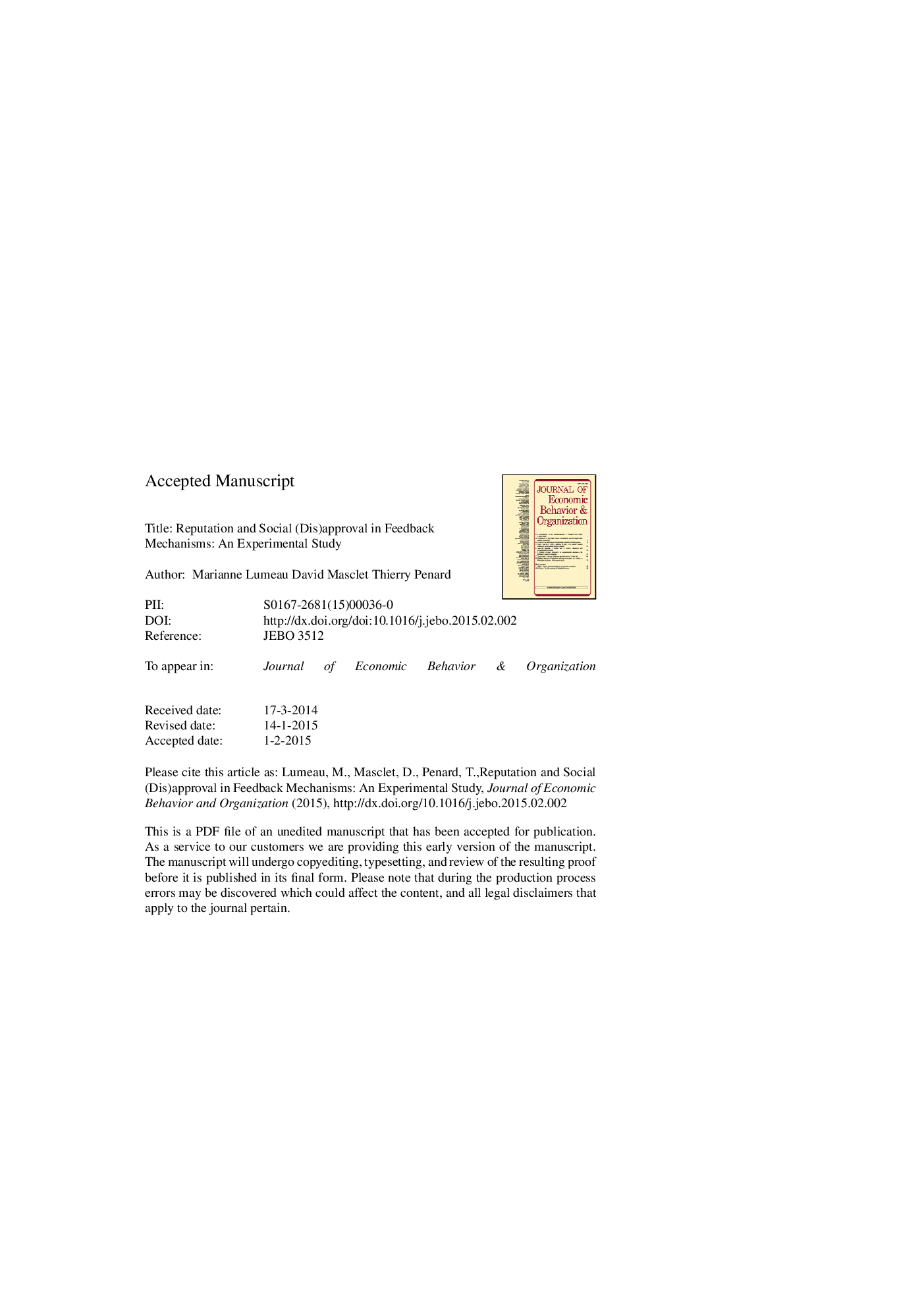| Article ID | Journal | Published Year | Pages | File Type |
|---|---|---|---|---|
| 7243246 | Journal of Economic Behavior & Organization | 2015 | 33 Pages |
Abstract
Several previous studies have highlighted the role of feedback mechanisms in the success of electronic marketplaces. This paper contends that the effectiveness of online feedback mechanisms passes through two channels, namely a 'reputational' effect that has been largely documented in the literature, but also a '(dis)approval' effect that has received less attention. We attempt to isolate these two effects using an experimental approach. For this purpose, we compare two experimental feedback systems that differ in the set of information available to participants. In the first feedback system, each player can observe the feedback profile of the other party, whereas in the second feedback system, this information is private. Our findings indicate that both systems improve cooperation. However, we observe that Private Feedback is less efficient in enhancing trust and trustworthiness than systems in which rating profiles are observed by partners. This finding is due to both a reduction of the number of assigned ratings and a lower impact of private ratings on subsequent decisions. All these results suggest that even if social (dis)approval matters, rating observability - and thus reputation - remains critical to induce honest behavior and improve efficiency in markets characterized by imperfect information.
Related Topics
Social Sciences and Humanities
Economics, Econometrics and Finance
Economics and Econometrics
Authors
Marianne Lumeau, David Masclet, Thierry Penard,
